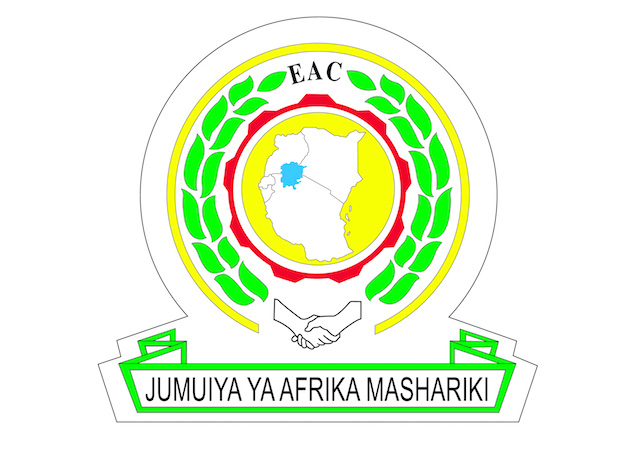
Student Exchange Programme afoot as EAC marks 20th Anniversary
East African Community Headquarters, Arusha, Tanzania, 25th July, 2019: The Inter-University Council of East Africa (IUCEA), an institution of the East African Community (EAC), is currently running an advert for the nascent EAC Scholarship Programme.
The advert is basically inviting applications for Master’s degree scholarships tenable at universities in four EAC Partner States, namely Kenya, Rwanda, Tanzania and Uganda. The advert, which runs from 5th July to 1st August, 2019, was first published in the 6th – 12th July edition of the weekly The East African newspaper. It is also available on the IUCEA website: https://iucea.org/
The number of available scholarships under the programme are 157 under six thematic areas, namely: Mathematics; Engineering; Informatics; Science; Technology, and; Business Science.
The EAC Scholarship Programme is the product of a financing agreement of €5 million signed between the EAC and the Federal Republic of Germany on 9th April, 2018. The scholarship programme is being implemented in cooperation with IUCEA and KfW, the German Development Bank.
The goal of the programme is to promote the integration agenda in East Africa by supporting higher education students. Scholarship beneficiaries will undoubtedly foster awareness about the integration, and spur social change and economic growth.
The programme is designed to support EAC students with academic talent and leadership qualities. In addition to the provision of scholarships, the EAC scholars will be actively facilitated through programme activities such as regional leadership seminars and mentoring schemes.
It is further anticipated that the beneficiaries of the scholarship programme will become highly skilled ‘change agents’ for their home communities as qualified professionals with a strong understanding of regional challenges, approaches and expertise in their subject fields.
The EAC region has a long history of cooperation in education particularly between Kenya, Uganda and Tanzania, which are the founders of the Community. The EAC is cognizant of the fact that most of its aspirations can only be achieved through high quality and relevant education and training.
Under Article 103(a) of the EAC Treaty, Partner States undertook to promote cooperation in the development of science and technology, which are viewed as the prime movers of regional integration and development. The Community’s objective then is to develop a completely harmonized East African education system for the enhancement of a productive human resource base.
Inherent in a harmonized education system are: the establishment of a common reference to facilitate comparability, compatibility, equation and mutual recognition of education/training systems and qualifications among Partner States. There is also the shared view among Partner States on quality, criteria, standards and learning outcomes; promoting mobility of students and labour to foster integration, and; promotion of the region as a Common Higher Education Area.
The harmonization of education systems and curricula dates way back to the first Community. The EAC had a single examination system and same curricula. The University of East Africa (UEA) had its main campus in Makerere, Kampala, Uganda with affiliate colleges in Dar es Salaam and Nairobi. In the early1970s, UEA split into three independent universities: the University of Dar es Salaam, Makerere University in Uganda, and the University of Nairobi.
The EAC acknowledges that youth traditionally bring energy, drive and passion to any activity they embark on, and the integration process in East Africa is no exception. Added to this is the Community’s view that the youth will be the major beneficiaries of an integrated East Africa which is expected to bring with it various benefits which include, among other things, harmonized fees in institutions of higher learning, increased employment opportunities, better infrastructure, increased trade and investment, and socio-cultural integration. Some of the youth are already reaping these benefits of the integration.
The EA Scholarship Programme is modelled on the Erasmus Programme (EURopean Community Action Scheme for the Mobility of University Students) –an EU student exchange programme that was established in 1987.
Erasmus scholars study at least three months or undertake an internship of at least two months to an academic year in another European country. The programme has an in-built guarantee credit transfer scheme as long as the scholars abide by the terms previously set. A key component of the programme is that students do not pay extra tuition fees to the university that they visit. Scholars are also eligible to apply for an Erasmus grant to cover additional expenses occasioned by studying abroad.
For many EU students, Erasmus is their first time to live and study and abroad in another country. Erasmus has then become a cultural phenomenon and is highly popular among many students in Europe. The programme fosters learning and understanding of the host country.
The EAC on its part is convinced that the scholarship programme will help nurture a pan-East African identity among the youth. A year abroad will enable students to visit EAC Partner States other than the ones in which they were born and demystify any suspicions and mistrusts that could be inherent among citizens of one’s country vis-à-vis other countries. It will be a perfect opportunity for exposure of the youth to various peoples and cultures in East Africa.
As the EAC commemorates its 20th anniversary, it anticipates that the student exchange initiative engendered by the scholarship programme will foster regional integration by giving students a chance to live and learn in Partner States other than their own.
Going forward, the Community’s dream is that support for the scholarship programme will expand to include funding from philanthropists, Partner States’ governments, corporates and charitable foundations.
For more information, please contact:
Mr Owora Richard Othieno
Head, Corporate Communications and Public Affairs Department
EAC Secretariat
Arusha, Tanzania
Tel: +255 784 835021
Email: OOthieno [at] eachq.org
About the East African Community Secretariat:
The East African Community (EAC) is a regional intergovernmental organisation of six Partner States, comprising Burundi, Kenya, Rwanda, South Sudan, Tanzania and Uganda, with its headquarters in Arusha, Tanzania.
The EAC Secretariat is ISO 9001:2008 Certified
